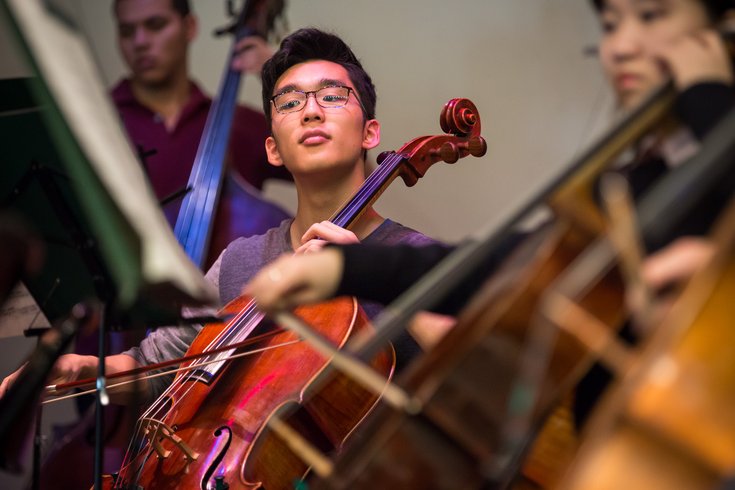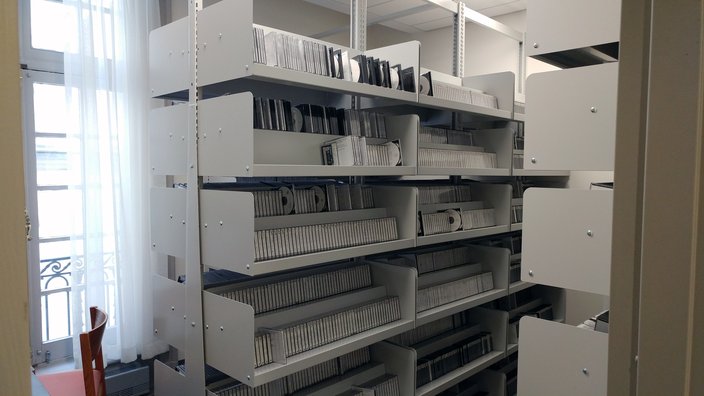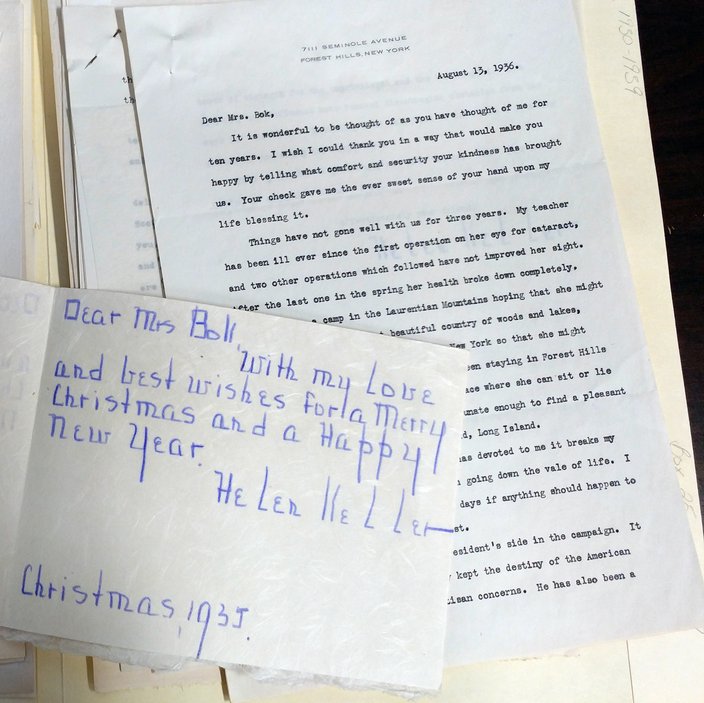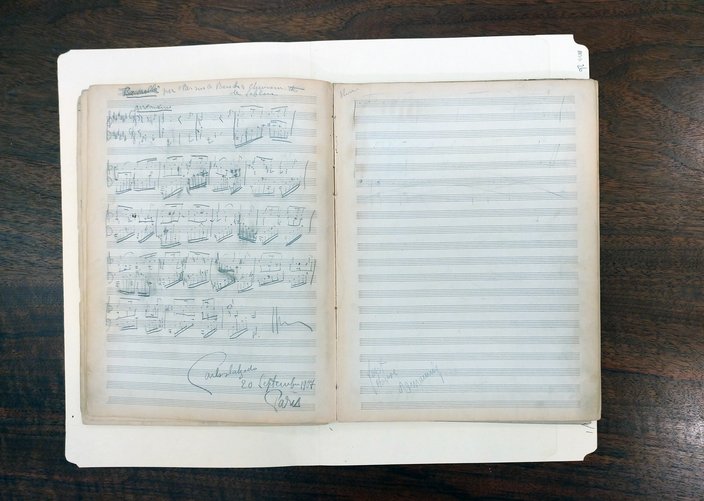
April 07, 2017
 Thom Carroll/PhillyVoice
Thom Carroll/PhillyVoice
A cello player from the Curtis Institute of Music rehearses for a fundraising concert, Monday, Jan. 16, 2017, at the Cramp Elementary School in Philadelphia's Upper Kensington neighborhood.
The Curtis Institute of Music houses an extensive collection of musical recordings dating back to the prestigious academy's founding in 1924.
Thousands of concert performances, student recitals and other historic recordings are stored at its library on formats ranging from audio reels to cassette tapes to DVDs.
Those formats are not only outdated, out of common use for decades, but showing signs of wear and tear. Some CDs have even begun to decay.
To preserve its historic collection — and to improve accessibility for the students, faculty and alumni who regularly use it — the Curtis Institute is converting its recordings to digital files. The general public may also be able to access some of the recordings remotely.
The collection will be stored on Preservica's cloud edition, an online platform that will save physical space and preserve digital recordings in a usable format.
"There's a difference between just saving something as a digital file and making sure it will be able to open in 5 or 10 years," digital archivist Barbara Benedett said. "You have to go with a system that is going to go with real preservation of the files, because they do decay."
The Curtis Institute of Music is preserving its historic collection of recordings, which date back to 1924, on Preservica, an online cloud service.
The shift to Preservica will provide students with faster access to recordings of their recitals, used for both auditions and educational purposes.
The Curtis Institute enrolls 175 students who perform more than 100 concerts in Philadelphia each year, as well as numerous recitals. Currently, those performances are recorded and cataloged for future reference, a process that requires hours of postproduction before the recordings are burned onto CDs and DVDs and sent to the campus library.
Now, audio-video files will be uploaded directly to Preservica following post-production.
"A lot of times they come in and ask for their recital and it's not ready," said Molly O'Brien, media and meta data librarian for Curtis. "This will just speed up the process. They will get their recital quick and in a format that's more useful to them."
The Curtis Institute of Music archives include a letter sent from Helen Keller to Curtis Institute founder Mary Louise Curtis Bok.
The music academy's library and archives boast recordings of composer Leonard Bernstein, Grammy winner Jennifer Higdon and Pulitzer Prize-winner George Walker, among other luminaries. It also has original broadcasts from the National Broadcasting Company.
Its archives contain the correspondence of its founder, Mary Louise Curtis Bok, including a letter from Helen Keller, and various Curtis Institute alumni. There are some 8,000 photographs on file and plenty of historic sheet music.
All of that will be preserved in digital format too, limiting wear and tear on the paper documents and photographs.
Researchers who use the library while writing books, preparing documentaries or conducting doctoral work eventually will be able to access much of the collection remotely. But certain recordings, such as recitals, will remain restricted to the performer, students and faculty.
"Someone (who) was here 10 years ago as a student — now maybe they're mid-career in an orchestra," Benedett said. "They don't necessarily want their student recital out there for everyone to hear. We're trying to mindful of that."
The archives of the Curtis Institute of Music contain a composition book of Carlos Salzedo, a French harpist who spent time teaching at the Curtis Institute.
The process of digitizing the collection, from reels to DVDs, will be a slow one. Digital files can't simply be uploaded to the cloud. They need to be correctly archived so users can easily find the recordings and documents.
"You have to have meta data attached to them, so they're actually findable," Benedett said. "It can't work like a Google search. If you search Beethoven you get 6 million options. That's not really useful, so we have to make sure we design it right."
Right now, Benedett and O'Brien are working to convert the historic collection, while keeping up with recordings of the latest student performances. To aid them, the Curtis Institute is applying for grant funding.
Ultimately, the transformation might bring greater awareness to the treasures housed by the Curtis Institute.
"We haven't been able to make known everything we have," O'Brien said. "There's stuff here that isn't anywhere else."
 Source/Curtis Institute of Music
Source/Curtis Institute of Music Source/Curtis Institute of Music
Source/Curtis Institute of Music Source/Curtis Institute of Music
Source/Curtis Institute of Music